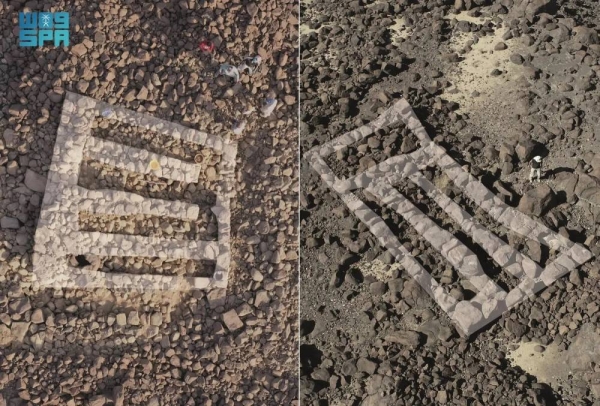The Royal Commission for AlUla (RCU) recently announced the discovery of a Bronze Age town in the Khaybar Oasis, located in the northwest of the Kingdom of Saudi Arabia. This significant discovery was published in the scientific journal PLOS ONE and highlights the Kingdom’s commitment to preserving its rich cultural and historical heritage, as well as its desire to collaborate with the international community to promote awareness of common human heritage. The transition from a mobile pastoral life to a settled urban life during the Bronze Age challenges previous notions about the socio-economic model in northwestern Arabia.
The research, part of the Khaybar Longue Durée Archaeological Project, led by Dr. Guillaume Charloux and Dr. Munirah AlMushawh, uncovers evidence of significant urban centers in the region that maintained stability through agriculture and served as trade hubs for nomadic communities. The discovery of the town of Al-Natah, inhabited by 500 individuals between 2400 and 2000 BC, sheds light on the emergence of urban design and its influence on the socio-economic paradigm of the region. This discovery reinforces the need for international partnerships to preserve and present such rich heritage to future generations worldwide.
The Khaybar Oasis, situated in a highly arid area on the edge of the Harrat Khaybar volcanic field, was home to the discovered town of Al-Natah, buried beneath layers of basalt rock for thousands of years. The archaeological site, identified in October 2020, provides insight into the residential and funerary areas of the town, depicting a clear division within forts and cities. Future excavations are expected to reveal more details about life in Al-Natah, including the residents’ skilled craftsmanship, diet, and social structure.
Collaboration between the Royal Commission for AlUla, the French Agency for the Development of AlUla (AFALULA), and the French National Centre for Scientific Research (CNRS) has been instrumental in conducting this research. The commission’s Department of Archaeology, Collections, and Conservation manages one of the largest archaeological research programs globally, aiming to elevate AlUla’s status as a premier cultural heritage destination. The recent discovery adds to a series of studies exploring ancient AlUla and Khaybar, revealing the sophistication and interconnectedness of Bronze Age societies in the region.
The discovery of the Bronze Age town in the Khaybar Oasis underscores AlUla and Saudi Arabia’s role as a global hub for archaeological research and cultural dialogue. With 10 archaeological projects supervised by RCU and the contributions of 100 archaeologists and specialists in AlUla and Khaybar, Saudi Arabia’s commitment to preserving its cultural heritage and promoting international partnerships is evident. The recent announcement comes on the heels of the AlUla World Archaeology Symposium 2024, which brought together experts from around the world to discuss the past, present, and future of mobile communities in archaeology and heritage.
In conclusion, the discovery of the Bronze Age town in the Khaybar Oasis is a significant milestone in understanding the ancient history of northwestern Arabia. This finding highlights the Kingdom’s dedication to preserving its cultural heritage, fostering international collaborations, and promoting awareness of common human heritage. As future excavations continue to uncover more details about life in Al-Natah, the importance of preserving and sharing this rich heritage with future generations becomes increasingly apparent.










